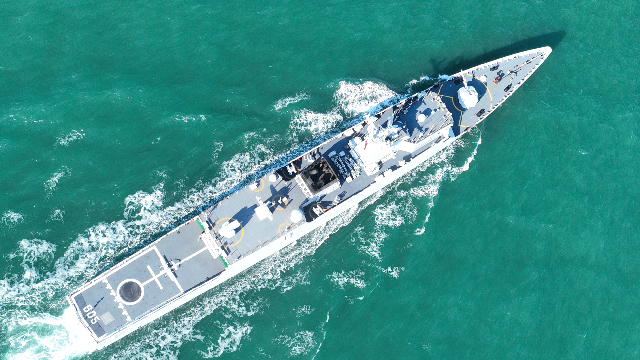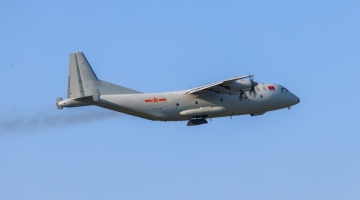By Sun Shaohong, Tian Yu
Japanese Defense Ministry recently released information that it had signed a 3-billion-Yen deal with the US to sell it the Patriot ground-to-air missiles possessed by JASDF, arousing close attention in the international community. Analysts said the weapon export deal once again revealed Japan's attempt to continuously hollow out the Pacifist Constitution and shake off the post-WWII military restrictions on it. This extremely dangerous tendency will destabilize the international security situation and tilt the regional military balance.
Japan, a losing party in WWII, established three principles on weapon export in the 1960s. In 1981, the National Diet of Japan passed a resolution on weapon export that completely prohibited the country's export of weapons. However, with the changing international situation and the increasingly right-leaning domestic politics, Japan has been loosening its weapon export ban with all kinds of excuses.
After the Abe administration rolled out the Three Principles on Transfer of Defense Equipment and Technology in 2014, Japan has quickened its steps of breaking the weapon export restrictions and lifting the ban. In 2022, it revised the principles to allow the export of such military supplies as bullet-proof vests to Ukraine. In January 2023, it signed the MoU on Security of Supply Arrangements(SOSA) with the US, establishing a cooperative framework of mutual priority and guarantee to ensure the stable supply of military equipment and supplies to each other. In December 2023, Japan again revised the three principles and their implementing guideline to allow the export of missiles and other destructive weapons. In March this year, the country revised the implementing guideline once again to allow the export of fighters to third countries.
Selling parts and components of ground-to-air missiles to the US, co-developing fighter-borne air-to-air missiles with the UK, and providing military equipment for the Philippines and other countries – Japan is obviously taking bigger steps in weapon export. The latest missile export to the US marked the first time it exported weapons of destructive capability, a new sign of its expanded weapon export. There are many reasons behind Japan's unremitting efforts to lift the weapon export ban and make dangerous attempts.
First, Japan wants to relieve its economic pressure by promoting weapon exports. Japan's defense budget for the fiscal year of 2024 stands at around 7.95 trillion Yen, a year-on-year increase of 16.9% and growing for the 12th consecutive year, adding much strain to the country's consistently sluggish economy. At the moment, Japan's more than 1,000 defense-related enterprises, including Mitsubishi Heavy Industries and Kawasaki Heavy Industries, provide over 90% of the JSDF's weapons and equipment, yet their defense products account for less than 10% of their total output. Now that Tokyo allows exporting missiles to the US, it can take the opportunity to sell its missiles, fighters, and ammunition to more countries for profits, thus reinvigorating the domestic defense industry and boosting the economy.
Second, Japan wants to improve its R&D capability and unleash productive potential. Weapons and equipment are difficult to develop and costly to produce. Increasing weapon export will give Japan more capital, reduce the R&D and production costs, and unleash the productive potential of defense enterprises.
At the same time, Japan intends to enhance those enterprises' R&D capability by increasing weapon export, not only addressing their chronic problems of small scale and high cost, but also gaining the production and R&D capability of some high-tech weapons and equipment by cooperating with the US and other countries, and arming the JSDF with more advanced weapons.
Third, Japan also hopes to tighten its military ties with the US through in-depth cooperation. The US has been unscrupulously promoting the so-called "major-country competition" and accelerated the loosening of military noose on Japan in recent years. As America's shortage of arsenal stock and production capacity become more prominent, Japan has acted as its "defense supplier", which has intensified their military ties and enhanced their ability to interfere in regional affairs together.
Weapon export concerns a country's direction of development. Japan's constant deviation from the "exclusively defense-oriented policy" and its export of weapons, even destructive ones, have gone wildly away from the path of peaceful development and will continue to worsen regional tension, calling for high vigilance from the international community. The Japanese government should deeply reflect on its historical crimes, stick to the path of peaceful development, stop finding excuses for its military buildup, and take solid actions to gain the trust of its Asian neighbors and the world in general.









